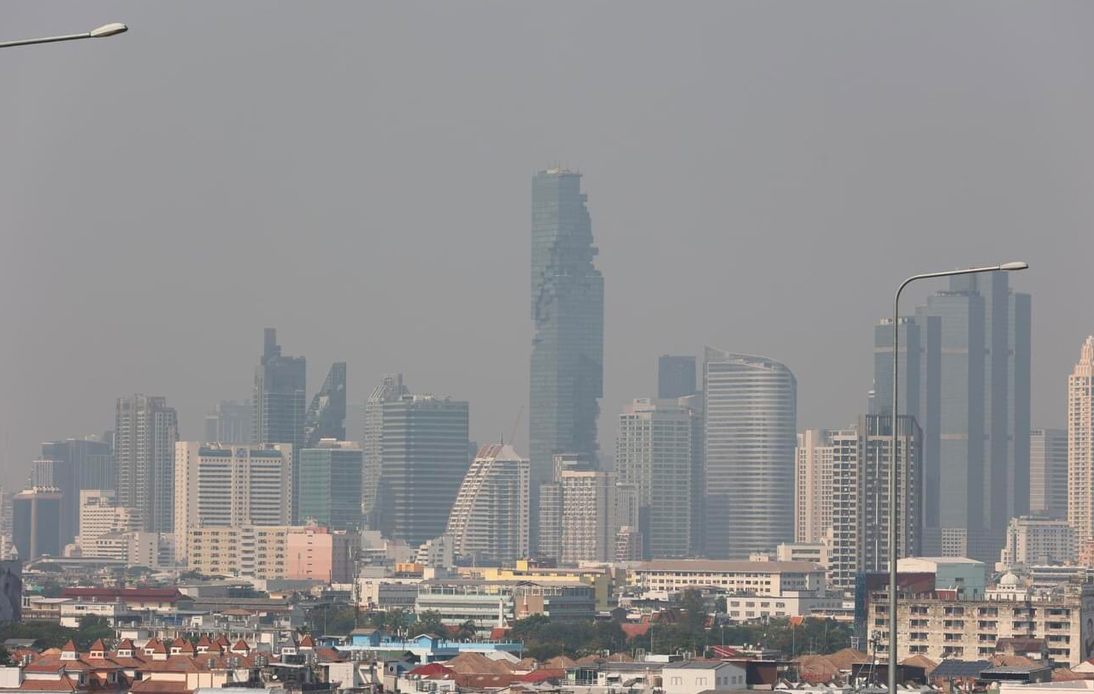As of Thursday, February 15, Bangkok ranked the ninth most polluted city in the world, according to the air-quality monitoring site IQAir.
Bangkok experienced a significant increase in PM2.5 levels on Wednesday, prompting the Bangkok Metropolitan Administration (BMA) to recommend that state agencies and private organizations allow their employees to work from home on Thursday and Friday.
Bangkok Governor Chadchart Sittipunt, in a statement, urged 151 government and private entities, employing a total of 60,279 individuals, to adopt remote working practices during this period.
Despite the pollution, BMA-run schools will remain open, offering safe areas to minimize PM2.5 exposure for both students and faculty.
As per IQAir’s latest data at 9 am, the top ten cities with the worst air pollution are:
– Dhaka, Bangladesh – 266
– Delhi, India – 222
– Karachi, Pakistan – 183
– Lahore, Pakistan – 183
– Kolkata, India – 182
– Mumbai, India – 173
– Kathmandu, Nepal – 165
– Yangon, Myanmar – 162
– Bangkok, Thailand – 162
– Kabul, Afghanistan – 161
The BMA’s AirBKK center noted that as of 11 am Wednesday, twenty districts in Bangkok had PM2.5 concentrations exceeding 75 micrograms per cubic meter (µg/m³), a level considered hazardous to health, surpassing the safe limit of 37.5 µg/m³.
The affected districts include Klong Sam Wa, Thawi Watthana, Thon Buri, Bangkok Noi, Bang Khen, Bang Bon, Bang Phlat, Bung Kum, Prawet, Lat Krabang, Nong Khaem, Nong Chok, Kannayao, Taling Chan, Bang Na, Pathumwan, Pomprap Sattruphai, Min Buri, Yannawa, and Laksi.
Residents are urged to stay updated with air quality alerts from AirBKK’s Line Alert service, as the PM2.5 situation is expected to worsen.
On Wednesday, the Pollution Control Department (PCD) predicted that the levels of PM2.5 pollution in Bangkok and neighboring areas would worsen through Saturday.
Meanwhile, the Meteorological Department noted that air stagnation, which significantly contributes to the severity of PM2.5 pollution, started on Wednesday and is expected to persist today.
From last Saturday to Tuesday, 3,241 fire hotspots were identified in Central and Northeast Thailand, with 14,939 in Cambodia, according to the PCD.
A collaborative air quality update from numerous organizations, including the Geo-Informatics and Space Technology Development Agency (Gistda), revealed that on Wednesday, 39 provinces in Thailand were in PM2.5 pollution red zones.
In Bangkok, 40 out of 50 districts experienced exceedingly high PM2.5 concentrations, thereby presenting a health risk to residents.


